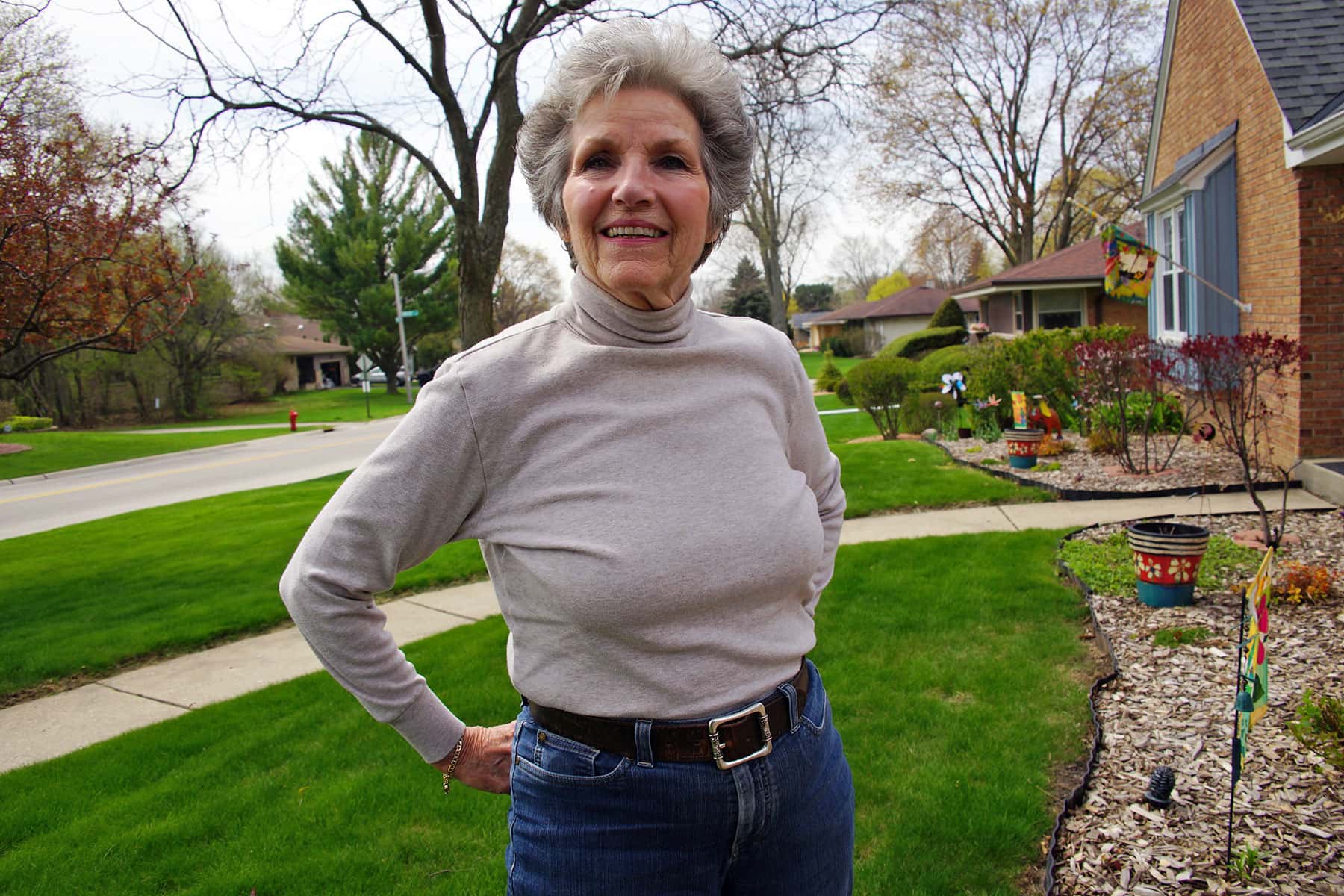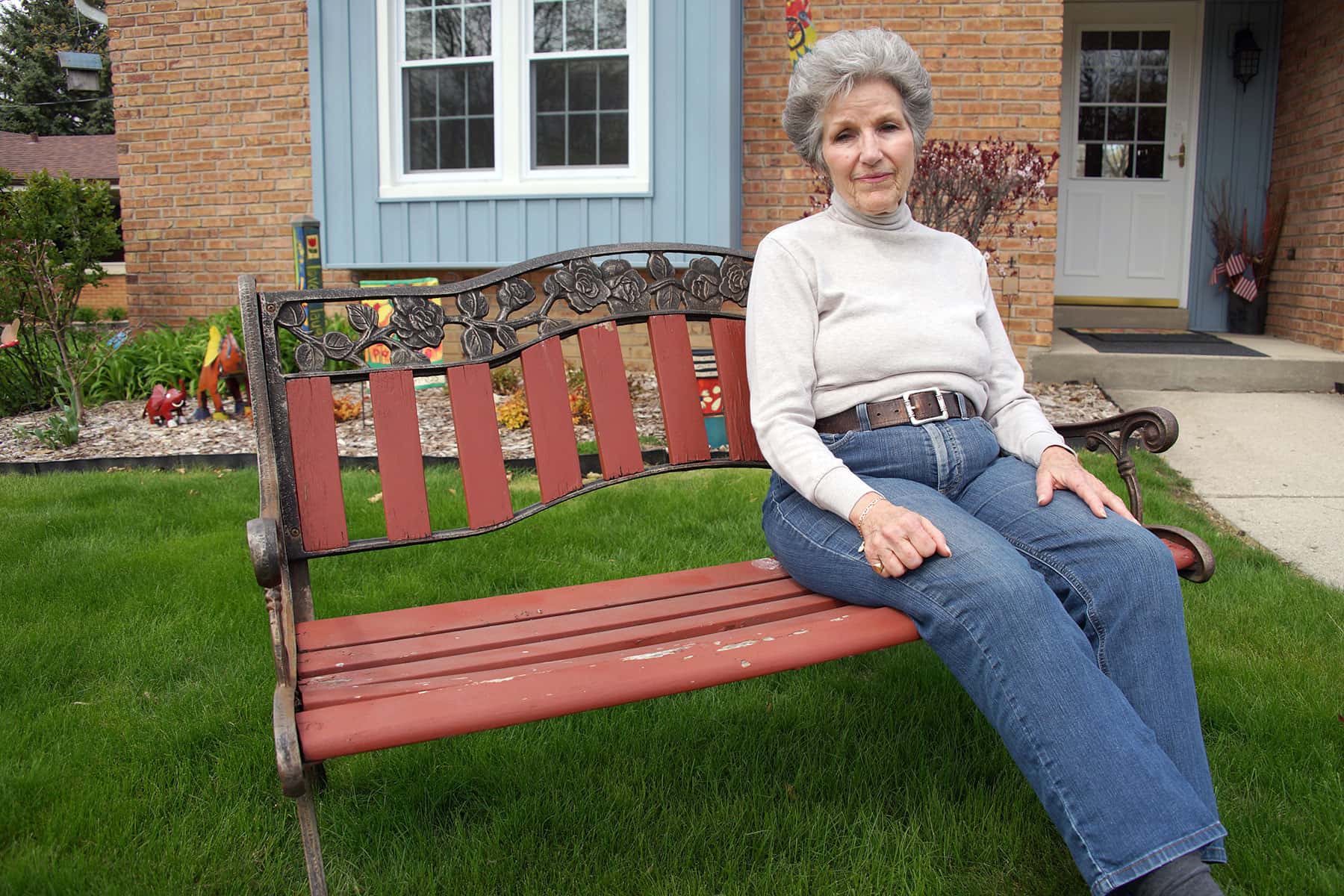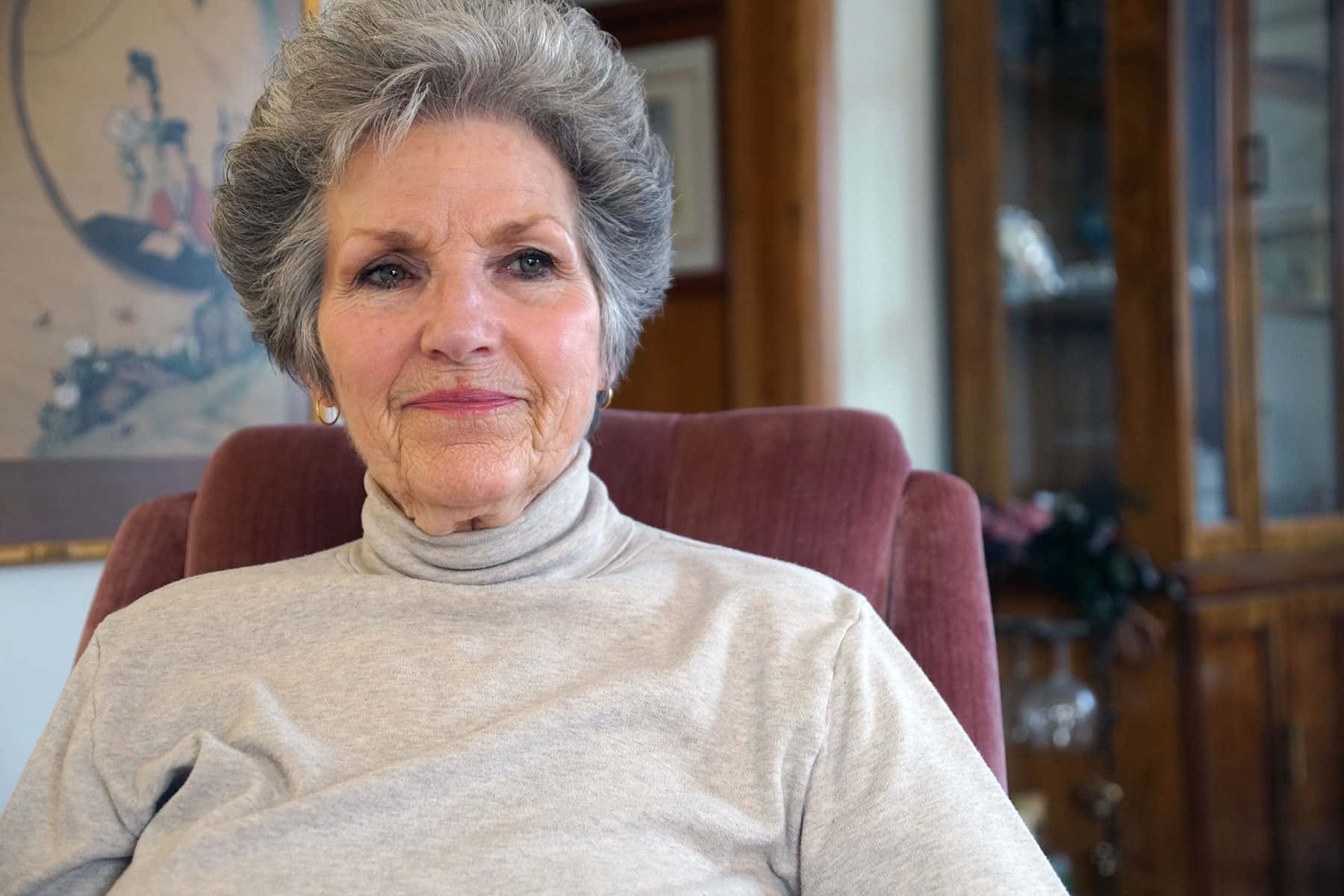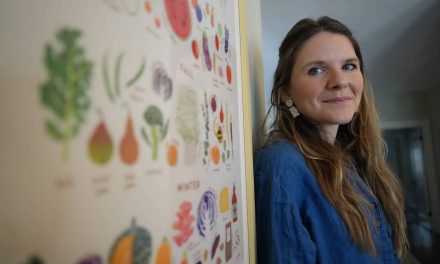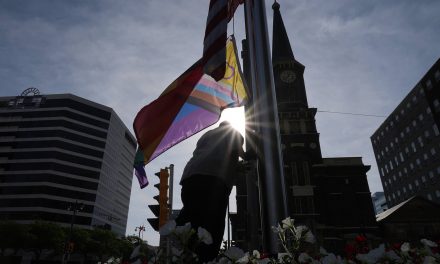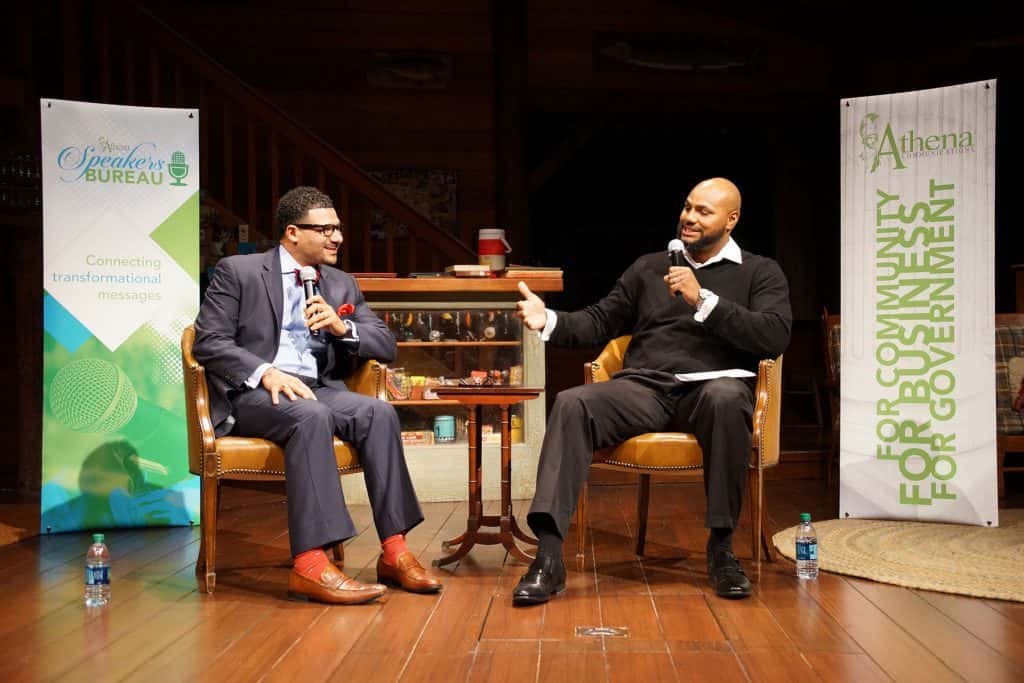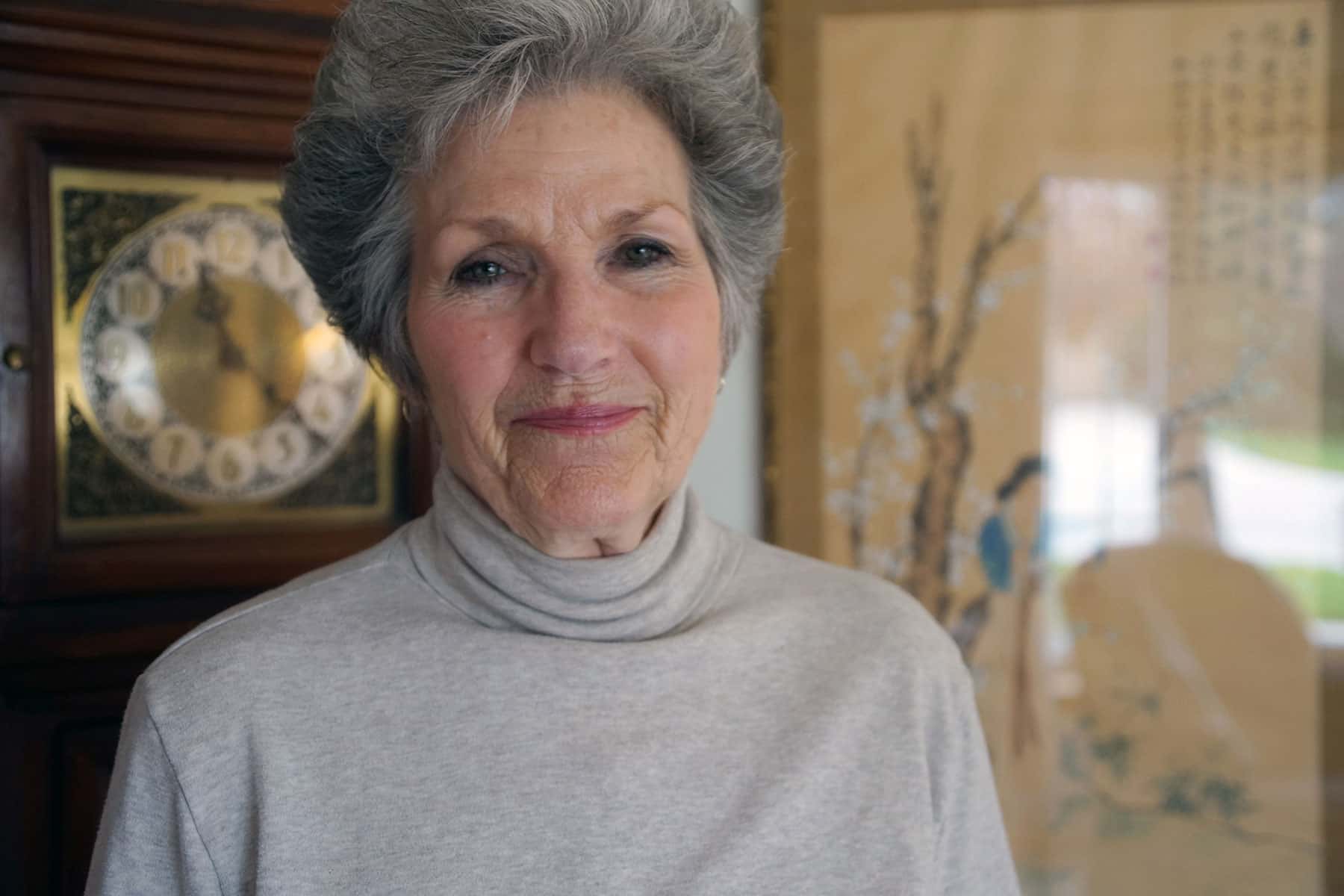
From being evacuated with her family out of Iran during the Islamic Revolution in 1979, to managing the public information of the many high profile Los Angeles courtroom trials of the 1990s, Jerrianne Hayslett has been a witness to the power of the news media, and the misuse of that public trust in the race for corporate profits.
The award-winning author of “Anatomy of a Trial,” newspaper journalist, and world-traveling consultant on issues of law and media relations has made Milwaukee her home, and strives to bring social justice to her adopted city.
Q&A with Jerrianne Hayslett
Milwaukee Independent: What is the fondest memory of your youth, and who was the most influential person in your life?
Jerrianne Hayslett: Going to see the Santa at Miller and Rhodes, a department store in downtown Richmond, Virginia. Doing things with my dad, such as working in the garden, siphoning flood water from a hurricane out of our cellar, going to New York Yankees’ AAA farm team baseball games, attending his Richmond Lions Club breakfasts that hosted the Yankees en route from spring training in Florida to New York at the beginning of each season.
Milwaukee Independent: If you could send a message back in time to a younger version of yourself, what would you say?
Jerrianne Hayslett: Pay attention, study more, work harder, have an objective, don’t worry about what others think of you.
Milwaukee Independent: Is there an achievement you are most proud of, and what has been the most important lesson of your life journey?
Jerrianne Hayslett: Earning a later-in-life than typical college degree, being selected by the Los Angeles Superior Court as its first-director director of public information and media liaison, being married to my husband for 56 years. Set goals, work to achieve them. Understand others’ perspectives.
Milwaukee Independent: How has faith been a part of your life and the work you have done?
Jerrianne Hayslett: My parents were lifelong Methodists, as were their parents, so I was exposed to the typical Protestant education, primarily via regular Sunday School, Church, vacation Bible school attendance. That provided a strong moral foundation for understanding right from wrong, of social justice, and of empathy, particularly as articulated in Matthew 25:35-40 and Matthew 7:12. [*]
*
Matthew 25:35-40 New International Version (NIV)
35 For I was hungry and you gave me something to eat, I was thirsty and you gave me something to drink, I was a stranger and you invited me in, 36 I needed clothes and you clothed me, I was sick and you looked after me, I was in prison and you came to visit me.’
37 “Then the righteous will answer him, ‘Lord, when did we see you hungry and feed you, or thirsty and give you something to drink? 38 When did we see you a stranger and invite you in, or needing clothes and clothe you? 39 When did we see you sick or in prison and go to visit you?’
40 “The King will reply, ‘Truly I tell you, whatever you did for one of the least of these brothers and sisters of mine, you did for me.’
Matthew 7:12 New International Version (NIV)
12 So in everything, do to others what you would have them do to you, for this sums up the Law and the Prophets.
Milwaukee Independent: What did the experience of working for the Los Angeles Court teach you about the American legal system and the news media?
Jerrianne Hayslett:
- How much all media, not just the news media, but entertainment as well, shape, perpetuate and calcify public perception.
- The ingrained animosity judges and court staff have for the news media and how little news reporters, producers and photographers understand the court system and judges.
- How inaccurate members of the news media can be and the degree they are in denial about that.
- That despite the overt and seeming inherent conflict between the 1st and 6th Amendments to the U.S. Constitution, the courts and the news media can work cooperatively with each other without compromising the principles of their “constituents” Constitutional rights.
Milwaukee Independent: It would be an understatement to say that a lot has been written about the O. J. Simpson trial, but is there one thing from the ordeal that has avoided the public’s attention?
Jerrianne Hayslett: The real Lance Ito, who he is as a person and as a judge, the reasons he made some of the decisions and rulings he did, how utterly exhausting and demanding presiding over that trial was. The absolute power the media have in shaping public perception and opinion. There was such a great difference in what people saw on TV and what happened in the courtroom, and what they didn’t know about that occurred behind the scenes. People think they know everything about the trial and the case.
What escaped the public’s attention was that Ito was a good, thoughtful, and intelligent judge. While the news media portrayed him as incompetent and star struck, they almost ignored was how hard he came down on the attorneys in that case. I don’t believe the news media ever reported that he fined the lawyers for misbehavior and violating court rules and court orders more than any attorneys had been fined before in a criminal trial in the State of California. His well-intentioned interview months before opening statements in the trial and his decisions regarding courtroom cameras, were skewed to fit the media’s depiction that he was a celebrity wannabe.
I have talked with a number of judges from other parts of the country who took issue with Ito’s trial management. None attended the trial, talked with Ito or read the trial transcript. All they knew about the trial was media coverage of it. When I pointed out and corrected their misconceptions — that Ito held “bankers’ hours”, that he didn’t admonish or sanction the lawyers — they were amazed and said they didn’t know that.
Milwaukee Independent: What do you think was the long-term impact to society from the O. J. Simpson trial and other such high-profile cases?
Jerrianne Hayslett: Trivializing serious legal issues, often dealing with life and death, proceedings, turning them into entertainment. Although the Simpson case was not the advent of reality TV, it certainly catapulted it into the fad that kind of viewing fare became.
Milwaukee Independent: How was your book “Anatomy of a Trial” received, and does the public have an aptitude for a deeper understanding of historic events that were so overtly sensationalized?
Jerrianne Hayslett: It got excellent reviews, which are available on my website www.anatomyofatrial.com. The feedback I heard personally from many sources was that it was revealing, informed them of many aspects of the case and people associated with it that they didn’t know. Others remained in denial.
Milwaukee Independent: From all the cases you observed related to the “War on Drugs,” where did that law enforcement effort actually succeed? And has there been a continued long-term failure with the policy?
Jerrianne Hayslett: I don’t know that it succeed in any way. The laws, charges, and sentences were structured and applied in such a way that discriminated against particular demographics, in my opinion.
Milwaukee Independent: Considering the daily infotainment from the 2016 election year and the current state of politics in America, did past courtroom dramas pave the way for today’s news coverage?
Jerrianne Hayslett: No, I don’t think so. That path was paved much earlier as a result of (1) turning “news” into a profit-generating business in the late 1970s (2) President Ronald Reagan eliminating the Fairness Doctrine in 1987. Courtroom dramas are just part of that market. [**]
**
The Neiman Reports published a great article in 1999, The Transformation of Network News tracking how that happened.
Milwaukee Independent: What is it about a courtroom drama that captures the public’s attention when other serious issues are ignored?
Jerrianne Hayslett: There’s actually very little drama in courtroom proceedings. Most trials are methodical, plodding, and boring. What moments of drama do people remember from the nearly year-long Simpson trial? Simpson trying to pull a leather glove over a latex glove and a hand with arthritis-swollen knuckles? Defense attorney Barry Sheck’s “How about that Mr. Fung!” gotcha moment when he accused L.A.P.D. criminologist Dennis Fung of incompetence? I can’t think of many. The real drama is created outside the courtroom, sometimes by lawyers or attention-grabbers. Most, however, comes from the news media under pressure. Reporters and producers not wanting to be bested by their competition or replaced by someone else from their newsroom who can “deliver” more compelling reports, news managements who need to justify the resources they’ve committed to a trial. Profits.
Milwaukee Independent: Why do you think many people these days are unable to distinguish truth from perception? And as nonprofits strive to make the world a better place, do you feel they should put more effort into communicating that progress?
Jerrianne Hayslett: Propaganda has always worked. Some methods and people are more effective and adept at delivering it than others. Today’s proliferation of sources for information and misinformation has greatly exacerbated that. Nonprofits are up against growing, more sophisticated and ever-louder message machines. To be effective in making their activities and good deeds known to the general public, nonprofits are going to have to innovate and find more effective means to communicate their messages.
Milwaukee Independent: Having worked in the legal system, do you think the news media and politicians have created an environment where they are above the law while the average person is still held accountable to it?
Jerrianne Hayslett: Politicians, yes. Members of the news media, no. Journalists’ 1st Amendment citations when they believe they have a right to access or of speech might create the impression that they place themselves above the law, but the law almost always sides with them.
Milwaukee Independent: You were in Tehran and documented an eye-witness account of the 1978-1979 meltdown under the Shah before the Islamic Revolution, so what do you remember most about that time? And how did those events influence your life, and your family?
Jerrianne Hayslett: Lack of information, particularly reliable information. English-language newspapers shut down, the only English-language radio we could listen to was Radio Moscow which we could at times tune in around midnight or after, TV was government controlled and carried only classical music and a photo of the Shah in a military uniform. The U.S. Embassy distributed “Info-Grams” on no particular schedule. These were one-page lists of events, curfew alerts, and updates on gasoline and bottled gas-rationing, shооtings and riots.
Security measures my husband and the family took, such as him wearing a civilian sport shirt over his military uniform when going to or from work, the military-provided bus with armed guards being unmarked and unremarkable. Both of those measures were because military personnel, particularly higher ranking officers, were targets of violence. One of our older children answered the door for visitors as another safety precaution because the Iranians would not target children.
The curfews, lack of social activities, isolation drew us closer together, made us more creative in avoiding boredom and being resentful of the situation. Except for when my husband was at work, we did everything together. We became much more appreciative of what we had, particularly each other. A favorite outing was to go to a local bakery to buy the heavenly Iranian barbari bread.
While the experience was a life-altering event for all of us, it was a sea-change in my life. Although I was already a published writer before we moved to Iran, the articles were primarily lifestyle-types of features I freelanced to magazines. No access to news or reliable information during our final weeks there sent me back to college, which I had quit years earlier to get married. I earned a journalism degree and began my newspaper career.
Milwaukee Independent: In your evacuation from Iran before the American Embassy was seized, what did you leave behind in the rush? And what was the culture shock like in coming back to America?
Jerrianne Hayslett: My husband and our children’s father, although he joined us in the States about 2-1/2 months later. Otherwise, everything we owned that we couldn’t squeeze into five suitcases, like household furnishings and appliances, our car, all personal belongings. The only exceptions were irreplaceable photos, scrapbooks and treasured memorabilia, which we had left with friends and relatives.
As for culture shock, we were more in shock from our ordeal than we were over cultural changes or events we encountered upon returning to the United States. My focus was entirely on trying to keep life as normal and as secure as possible for my children and on trying to track my husband’s situation, which was sketchy to say the least.
Perhaps most surprising to me having been in the midst of such a dangerous and historic event as the Islamic Revolution and our arduous trip back to the States was the animosity of members of the military, particularly high-ranking officers and their wives, when I said anything critical about U.S. government policies and actions. I believed and still believe that government officials’ decisions and using military and U.S. government contractors’ families as leverage, resulted in last-minute and traumatic evacuations.
I was also surprised, in fact amused, at nonmilitary-affiliated people’s reactions upon learning that we had lived in Iran and had been evacuated in during the Revolution. Those reactions were pretty much, Wow! But that was it. No questions. No requests to tell what it was like or what we had experienced.
Milwaukee Independent: While safely back on American soil, is there one memory that summarizes your experience during the 444-day Iranian hostage crisis?
Jerrianne Hayslett: Disbelief and dismay.
Milwaukee Independent: What was your reaction to the Academy Award winning movie “Argo,” and for whatever its story flaws do you think it helped a new generation understand those historic events?
Jerrianne Hayslett: I’m too biased and know too much to objectively assess “Argo” or what that movie might have accomplished. Although there were a few visual inaccuracies, such as an obviously Caucasian woman not wearing the traditional black body-concealing chador or at least a scarf covering her hair as she ran unimpeded through a Tehran bazaar long after the Revolutionaries had prevailed and Ayatollah Khomeini was in power simply would not have happened. I do hope that those who didn’t live through that period of history and saw the movie were positively informed by it.
Milwaukee Independent: Unlike most Americans today, you knew a time when Iran was friendly towards America, so do you think that day will ever return again?
Jerrianne Hayslett: I had great hopes as relations seemed to be improving the in past year or two, but not during the current climate. While Iranian policies and human rights are abysmal, I understand in part, the Iranian government’s distrust of the United States. I do hope, as do friends in Iran we remain in touch with, that conditions will again prevail that will enable both countries to explore and begin to work through that distrust.
Milwaukee Independent: In your opinion, what would surprise Milwaukee residents to know about the Iranian people?
Jerrianne Hayslett: Their warmth, their friendliness, their love for children, their desire for the same things in life that Americans want to have, non-materialistically speaking.
Milwaukee Independent: What is the most enjoyable aspect of your writing, and how is it personally rewarding?
Jerrianne Hayslett: That’s like asking what the most enjoyable aspect of breathing is. It is a necessity of life, an outlet, even if no one reads what I write. I can’t not write. The reward is in expressing an idea, a thought, an opinion, information. It’s part of me and who I am.
Milwaukee Independent: How has the field of journalism changed since you earned your degree, and do you have any predictions about its future?
Jerrianne Hayslett: The changes in journalism as I knew it during my career have been a 180-degree turn. At the time, the mantra was “the public’s right to know” or “the people’s need to know.” Today, it’s what people want that will profit the corporation. As I began and during most of my career, many newspapers were owned by newspaper chains. Some of those chains were family owned. Many newspapers, particularly small dailies and weeklies were independent. While profit margins were important, newspaper owners didn’t worship at the altar of profits. Those models are all but extinct these days. Large for-profit corporations and conglomerates own the vast majority of newspapers and broadcast networks. The profit motive and ideology drive all aspects of news operations. I don’t see that changing, in fact, it will only continue in that direction with increasing speed as long as profit is the motive and informing citizens with objective, fact-based, information isn’t. I do not envision another Walter Cronkite era.
Milwaukee Independent: What is your view of the news media today and the focus of its narrative? It is unfair to lump all forms of media together, like newspapers and network TV?
Jerrianne Hayslett: I still rely on the news media for what’s happening locally, regionally, nationally, and globally, but am more discriminating, questioning, skeptical and dismissive than I was twenty and thirty years ago. Blatantly biased and slanted news reporting is so pervasive and entrenched that I no long am amazed, although I’m appalled at the vast number of Americans who view, listen to and read those purveyors exclusively and accept their reporting as gospel. The lack of international news coverage is equally troubling. The English-language news I consume in other countries, particularly in the International Herald Tribune, the BBC, Al Jazeera, CNN International, and nationally produced media stands in stark contrast to the dearth of anything other than the herd-mentality of sensational headlines in this country.
Milwaukee Independent: The common complaint is that the media has failed the public by the style of its news coverage, but is the industry just giving people what they want? If there was no profit in punditry, or an overwhelming demand for something better, would the media be forced to change?
Jerrianne Hayslett: The media are giving people what makes a profit for media corporate owners and big dividends for their shareholders. Increasingly, the vast majority of TV viewers want candy, so that’s what the media give them. Just as in politics, money drives the news. Those who want something more substantive than train wrecks and shout radio/TV are turning to other news sources than TV. That leaves newspapers being starved and TV pandering to those who live for Kardashianesque fare.
Milwaukee Independent: Did the current era of fake news and alternative facts come as a surprise to you, and where do you think this trend will go?
Jerrianne Hayslett: The fact that it exists isn’t surprising. The fact that it’s embraced, endorsed, and purveyed to those in charge of the country is, as is the fact that such a huge preponderance of the “news” consumers believe it to be true.
Milwaukee Independent: How does Milwaukee compare to other places where you have lived, and what is your hope for the future of the city?
Jerrianne Hayslett: Generally, Milwaukee is similar in many ways to other places I’ve lived. The people are friendly and accommodating and want to provide for their loved ones. The greatest difference, I think, is how the city thrived during progressive eras with socialist leaders, and how it has declined in a capitalistic corporate-dominated culture. My hope is for the city’s potential and human treasure to be realized, true equal treatment of people at all levels and in every aspect, true social justice, business and government investment in it, and the return of self-determination. Very specifically, Milwaukee is the home of America’s Black Holocaust Museum, which we discovered, joined and have been active with since we moved here 15 years ago. Despite closing several years later and maintaining only as a virtual presence since, the museum and the legacy of its founder Dr. James Cameron, is a precious jewel that sets Milwaukee apart. We are so excited that the groundbreaking for a new building took place recently. That and the Garfield housing development.
Milwaukee Independent: What is the question you are most often asked to talk about? And is there a question that no one ever asks that you wish they would?
Jerrianne Hayslett: That depends on the context and who’s asking. If I’m being asked to speak at a court-, media-, legal-related conference or similar type of setting, the question most often is what was it like to be involved in that trial. The question I wish they would ask is, What are the pros and cons of having cameras in the courtroom and, if they are, what should be done to minimize their impact on the proceedings and parties in the courtroom.

